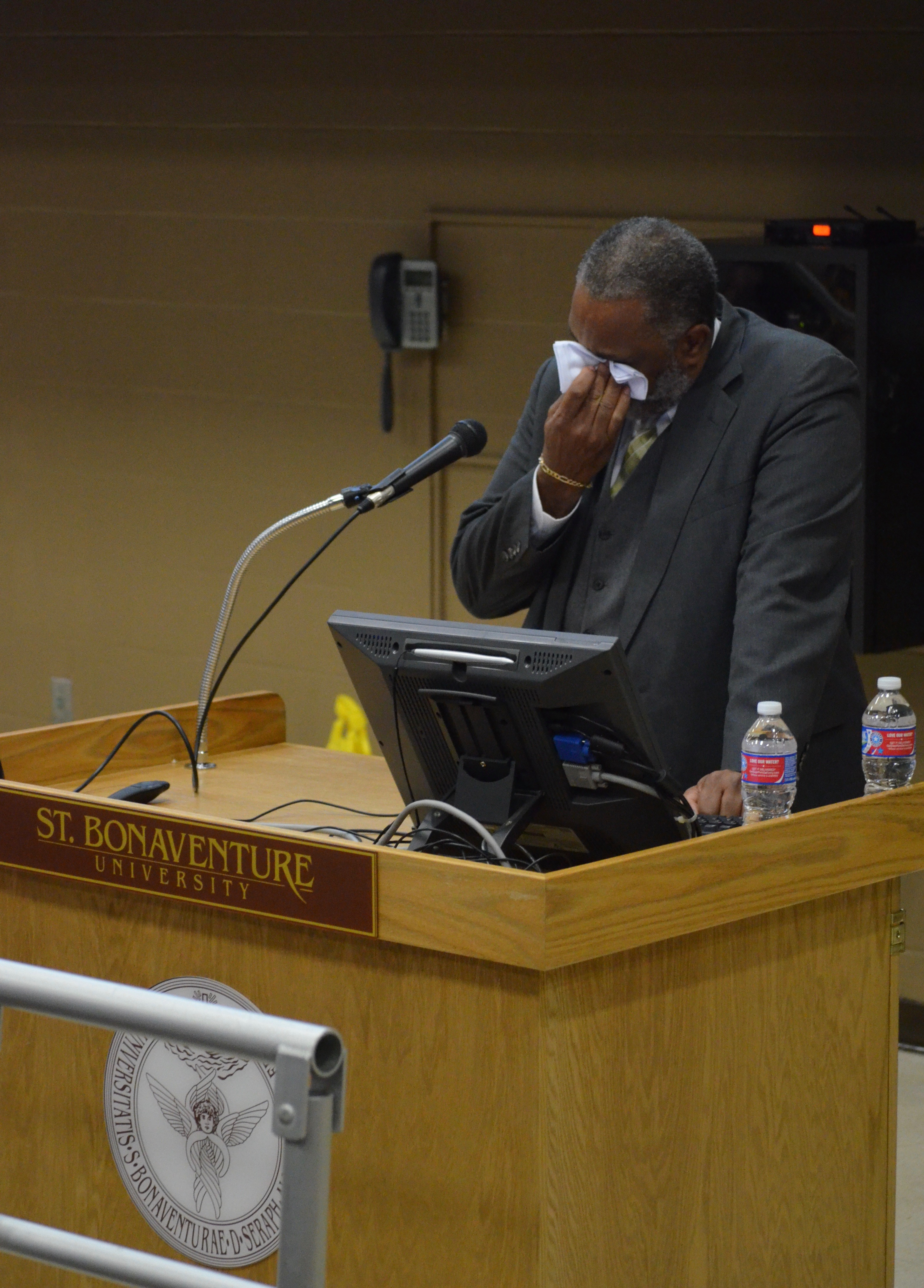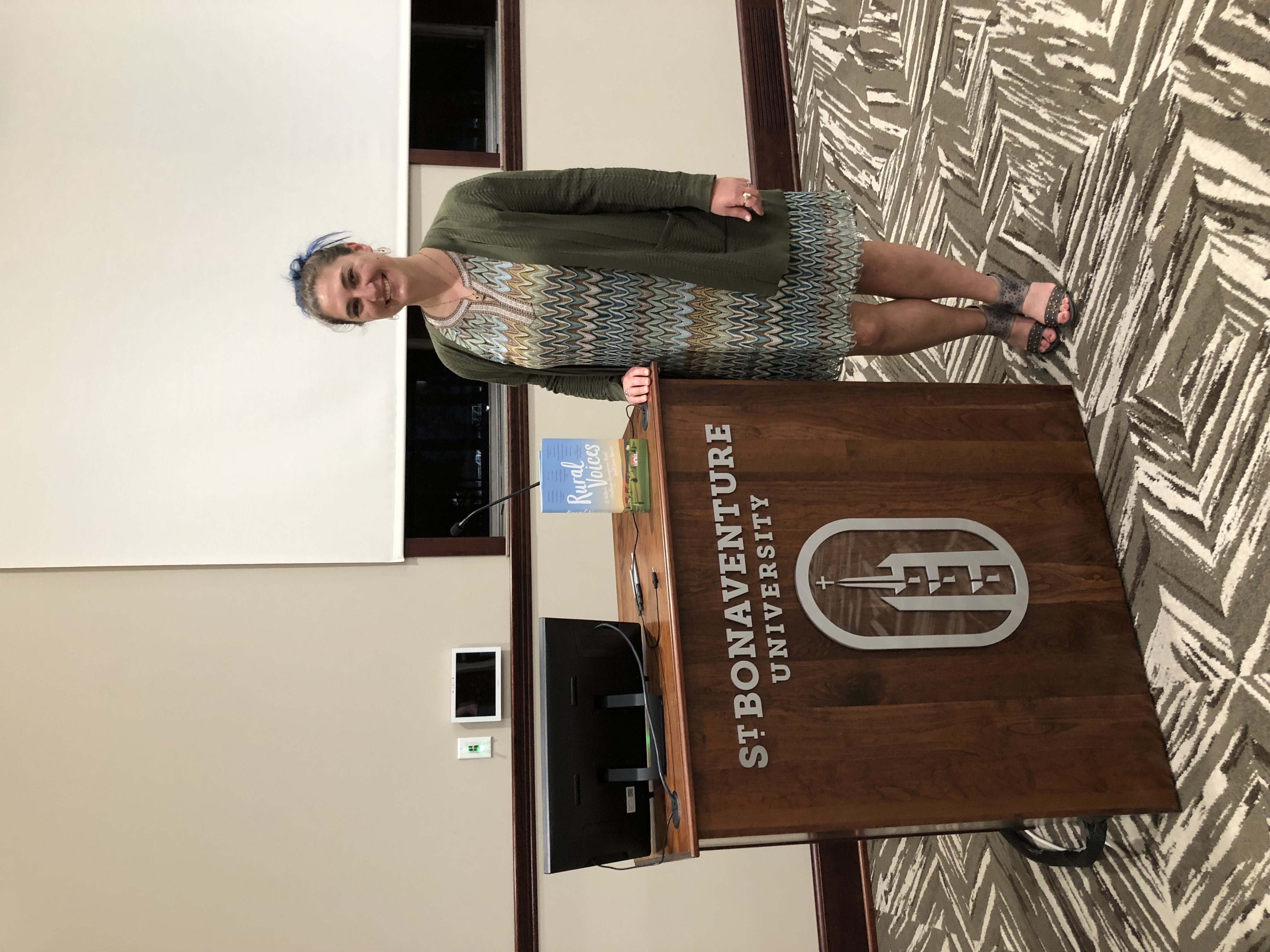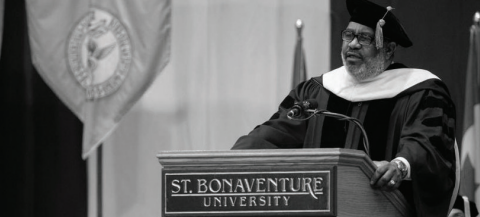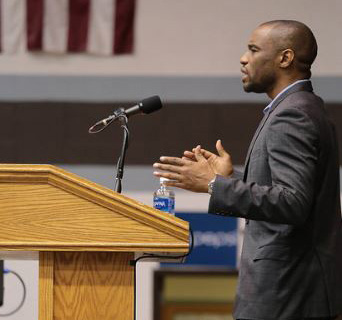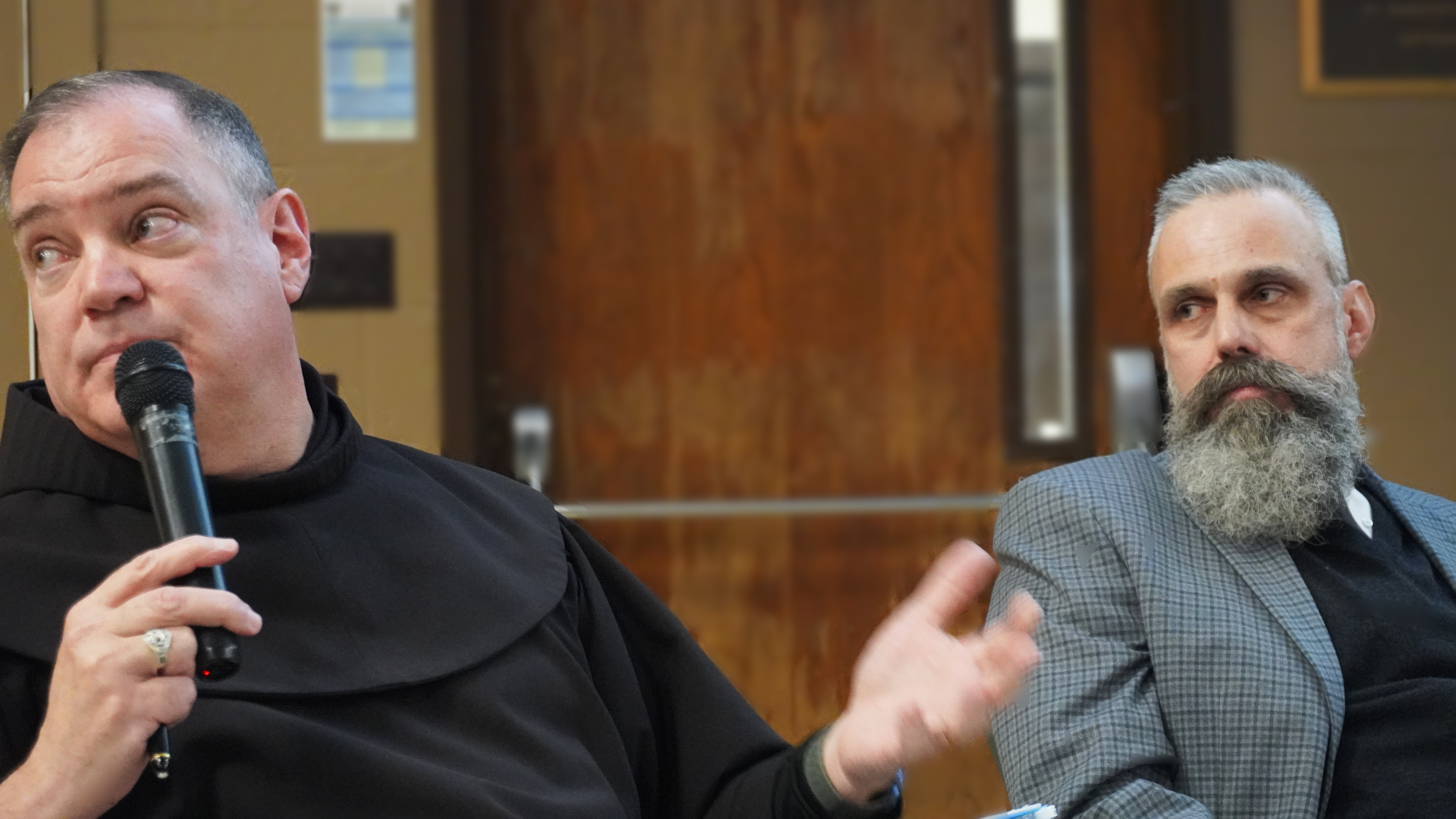By Rachel Konieczny
News Assignment Editor
“For 16 years, I leaned on death row for something that I didn’t do. For 16 years, the state of Alabama refused to retest the bullets because they didn’t have to. For 16 years, it was as though my life didn’t matter.”
Anthony Ray Hinton was exonerated from death row in April 2015. On Monday, Hinton visited campus as the All Bonaventure Reads speaker.
The First-Year Experience (FYE) program brought the presentation, titled “Stories of Justice and Redemption: The Impact of the Equal Justice Initiative,” to St. Bonaventure. Bryan Stevenson, executive director of the Equal Justice Initiative (EJI) and Hinton’s attorney, authored “Just Mercy,” the selection of All Bonaventure Reads, said Chris Brown, FYE director.
In 1985, Birmingham, Alabama, courts convicted Hinton of murdering two restaurant managers, said the exonerated 30-year inmate. In 1999, two ballistics experts from Texas and a third from Virginia proved Hinton’s innocence; however, the U.S. Supreme Court didn’t rule his case be retried until 2014.
Hinton said he had one request for the new ballistic experts, hired in 1999.
“I need this ballistics expert to be white,” Hinton told his attorney. “I need this expert to be from the South. I need him to believe in the death penalty, but more importantly, I need this expert to tell the truth when he examines the bullets.”
Charlotte Morrison, presentation speaker and senior attorney at EJI, described the racial injustice present in Hinton’s case.
“What happened to Mr. Hinton is not a mistake,” Morrison said. “It’s the symptom of a justice system that is riddled by racial bias and strangled by hopelessness. It’s the symptom of a system that treats you better if you are rich and guilty than if you are poor and innocent.”
Morrison said Bob McGregor, Hinton’s prosecutor, is the only prosecutor in the country to have been found to approve racial discrimination in jury selection.
Morrison said Hinton was convicted in Jefferson County, where McGregor was promoted after he had been found in Mobile to have removed every black juror from his jury. Morrison said this was proved by presenting the testimony of every lawyer McGregor faced and worked with. All testified that this was McGregor’s modus operandi, said Morrison.
“An incredible number of schools selected ‘Just Mercy’ and, unfortunately, Stevenson was not able to speak at St. Bonaventure while still maintaining his caseload and teaching commitments,” Brown said.
Stevenson is also a professor of clinical law at New York University, Brown said.
Gina Gerard, a freshman education major who attended the presentation, said Hinton and Morrison’s talks surprised her.
“This presentation shattered the expectations I had for it,” Gerard said. “I thought that it would be somewhat interesting; however, I did not expect it to be as good of a presentation as it was. There was not a moment during the presentation where I was wishing I was elsewhere.”
Gerard said Hinton’s story is relatable to her future field because she hopes to teach her students “not to racially stereotype people and to recognize injustice and stand up to it.”
Brown agreed the presentation was successful.
“The keynote with Anthony Ray Hinton and Charlotte Morrison was, without a doubt, the best All Bonaventure Reads keynote I have attended or helped plan in the past ten years,” Brown said. “When Mr. Hinton shared his story, the room was silent. I have never seen an auditorium of 500 people so attentive to a speaker.”
Hinton, closing his portion of the presentation, answered a common question asked of him.
“People ask me all the time, ‘How is it that you don’t hate the very people that did that to you?’ I look at them and I said, ‘If you can tell me what hate would profit me, then I would hate.’ When you hate, it kills your soul, and if I was to hate, then they have won. I am determined to win.”
koniecrc14@bonaventure.edu

